Reviews
Erich von Stroheim
USA, 1919
Credits
Review by David Carter
Posted on 26 August 2009
Source Kino DVD
Categories Oh, the Depravity! The Cinema of Erich von Stroheim
Erich von Stroheim was one of the first celebrities to take full control of their public persona. Upon arriving in America, von Stroheim changed his name and, essentially, who he was. Biographers agree that much of von Stroheim’s stated lineage of Austrian nobility was little more than fantasy; a larger-than-life back-story created to more readily match his personality. What cannot be disputed, however, is that von Stroheim was one of the key architects of American narrative cinema. Studying under D.W. Griffith as an assistant and actor, von Stroheim approached human interaction with the same obsession and zeal that Griffith had used for historical spectacle. When he made his directorial debut with 1919’s Blind Husbands, von Stroheim was already widely known as “The Man You Love to Hate.” He didn’t try to change his image with Blind Husbands, however. Though he had full creative control for the first — and last — time, von Stroheim had already determined how he wanted to portray himself: as a villain.
Blind Husbands begins by establishing the almost sacred serenity of its setting, the village of Cortina in the shadows of Monte Cristallo. Mountain guide Sepp has received word that his American friend Dr. Robert Armstrong and his wife Margaret will be arriving shortly. While Sepp reminisces about Armstrong saving his life on the mountainside, the Armstrongs’ carriage is trundling over the rocky passes towards Cortina. Accompanying them in their journey is the Austrian cavalry officer Lieutenant von Steuben: a stern-looking man who keeps to himself but notes the cool manner in which Dr. Armstrong treats his beautiful wife.
Von Steuben wastes no time making a play for Margaret after they arrive at the mountain lodge. At first he works subtly, giving her the attention that her husband denies her. When Margaret leaves the dining room for some fresh air, von Steuben follows close behind with a pillow and a blanket for her. His affection does not go unnoticed by Margaret or the villagers; in fact, everyone is aware of it except for Dr. Armstrong. Dr. Armstrong’s neglect of his wife is so great that a pair of honeymooners vow to never “never neglect [each other] like that!” after watching how he treats Margaret.
Emboldened by the further deterioration of their marriage, von Steuben begins more overt methods to woo Margaret, including gifts and professions of his love. Margaret fights off his advances as best she can but is becoming so emotionally torn that she falls ill. She has started to succumb to the dashing von Steuben’s charms yet still loves Robert. Robert, finally piecing together the clues but believing it is too late, invites von Steuben to climb the dangerous Monte Cristallo alongside Sepp and himself. The fabled mountain was once the scene of an adulterer receiving their comeuppance, foreshadowing the thoughts of revenge forming in Robert’s mind.
Having been made in a less permissive time means that Blind Husbands has a happy ending in which Dr. Armstrong is redeemed for neglecting Margaret and held blameless for von Steuben’s eventual demise. The film displays a shocking amount of cynicism towards human nature while still conforming to the morality of the day, however. For the majority of the film, von Stroheim paints a very bleak picture of Dr. Armstrong, preemptively blaming him for the film’s events during the opening intertitles. Armstrong’s neglect of Margaret is shown as the direct cause of his later misfortune. To show the cuckold as responsible for his fate was a bold move on von Stroheim’s part and presages other more salacious virtue and vice tales from the Pre-Code age. The film shows Armstrong no sympathy and instead repeatedly illustrates the emotional toll his behavior takes on his wife.
Margaret is equally a victim of Dr. Armstrong’s neglect and of the lecherous advances of von Steuben. In one particularly symbolic scene, von Steuben gropes Margaret’s breast on a foothill of Monte Cristallo. The scene is set in front of three crosses representing the crucifixion. Margaret is positioned in the center — in front of Jesus’ cross, using traditional iconography — representing both her innocence and implying that she will soon be sacrificed. Von Stroheim pushes the boundaries of sexual suggestiveness leading up to the fondling by positioning von Steuben’s crotch directly in front of Margaret’s face. Taking the metaphor even further are two bulls in the background, symbolizing the “horns of the cuckold” that it is implied will be given to Dr. Armstrong.
Sepp interrupts the pair, an incident that is repeated later in the film as well. Margaret remains virtuous but von Stroheim need not have her succumb to von Steuben to make his point in Blind Husbands. Margaret’s decision is mostly immaterial since von Stroheim’s main goal is to absolve von Steuben of any blame. Though lecherous, cowardly, and immoral, von Steuben is not responsible for any of Margaret’s real problems, Dr. Armstrong is. Even after von Steuben’s death, nothing is solved until Armstrong changes his ways.
In some ways, Blind Husbands is von Stroheim’s justification for creating “The Man You Love to Hate” persona. The film depicts a world where evil is omnipresent and often more attractive than good. The more often good men turn a blind eye, the more evil flourishes. Von Stroheim’s decision to hold on to his villainous image was an artistic choice; having the more capable and well-known actor as the villain ensures that the scales were unduly tipped in the favor of evil. Without that evil, there would be nothing for good to overcome. Blind Husbands sets the tone for much of von Stroheim’s later work by depicting the dark side of life; a world where individuals constantly struggle against virtue and vice. Von Stroheim himself remained ambiguous on the issue: never showing his true preference in the films, but displaying a keen knowledge of the interplay between the two, was the hallmark of a well-realized drama.
More Oh, the Depravity! The Cinema of Erich von Stroheim
-
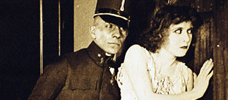
Blind Husbands
1919 -
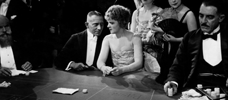
Foolish Wives
1922 -
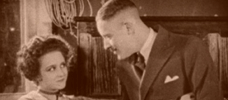
Merry-Go-Round
1923 -
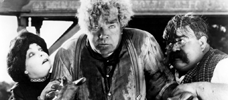
Greed
1924 -
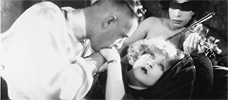
The Merry Widow
1925 -
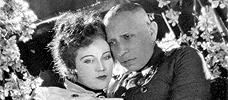
The Wedding March
1928 -
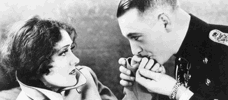
Queen Kelly
1929 -
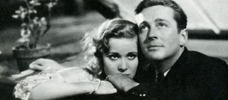
Hello, Sister!
1933
We don’t do comments anymore, but you may contact us here or find us on Twitter or Facebook.



